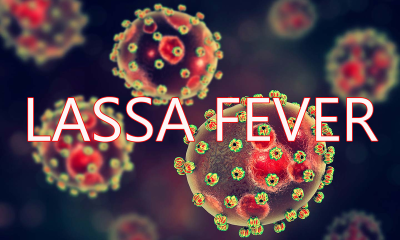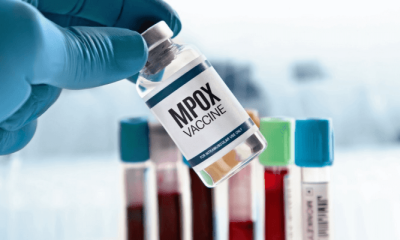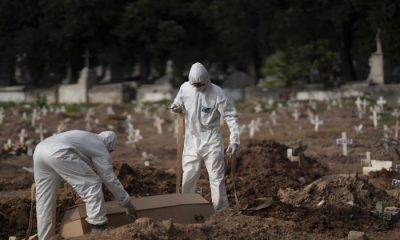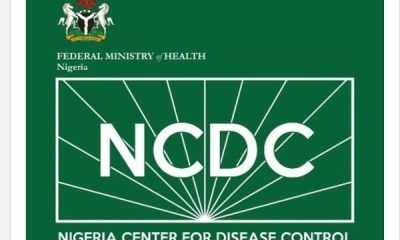Health
[JUST IN]: Diphtheria: NCDC Places Nigerians On Alert, Lists Osun, Yobe Among State With Fresh Outbreak

–As Osun, Yobe, Kano Record Cases
The Nigeria Centre for Disease Control and Prevention (NCDC) has asked healthcare workers to maintain a high index of suspicion for diphtheria by being vigilant and looking out for symptoms of diphtheria.
In a public health advisory issued Thursday night, Director-General, NCDC, Dr Ifedayo Adetifa, said the organisation has responded to reports of diphtheria cases in Lagos and Kano states.
He said NCDC is also monitoring the situation in Osun and Yobe states where cases are now being picked up.
The agency said in addition to clinically suspected cases, there have been laboratory-confirmed cases and it is working with state ministries of health and partners to enhance surveillance and response to the outbreak.
Diphtheria is a serious bacterial infection caused by the bacterium called Corynebacterium species that affects the nose, throat, and sometimes, skin of an individual.
The advisory read in part, “People most at risk of contracting diphtheria: Children and adults who have not received any or a single dose of the pentavalent vaccine (a diphtheria toxoid-containing vaccine); people who live in a crowded environment, people who live in areas with poor sanitation and healthcare workers and others who are exposed to suspected/confirmed cases of diphtheria.
“Diphtheria spreads easily between people through direct contact with infected people, droplets from coughing or sneezing, and contact with contaminated clothing and objects.
“The onset of signs and symptoms usually starts after two to 10 days of exposure to the bacteria. Symptoms of diphtheria include fever, runny nose, sore throat, cough, red eyes (conjunctivitis), and neck swelling.
“In severe cases, a thick grey or white patch appears on the tonsils and/or at the back of the throat associated with difficulty breathing.”
It said the Nigeria childhood immunisation schedule recommends three doses of pentavalent vaccine for children in the sixth to 10th and 14th-week of life.
The NCDC also advised healthcare workers to maintain a high index of suspicion for diphtheria and individuals with signs and symptoms suggestive of diphtheria to isolate themselves and notify the local government area, state disease surveillance officer, or the NCDC.
“Close contacts with a confirmed case of diphtheria should be closely monitored given antibiotics prophylaxis and started on diphtheria antitoxin treatment when indicated.
“All healthcare workers (doctors, nurses, laboratory scientists, support staff, etc.) with higher exposure to cases of diphtheria should be vaccinated against diphtheria,” it added.
Punch
-

 Opinion5 days ago
Opinion5 days agoThe Clout-chasing Dipo Awojide By Comrade Da’Peace
-

 News4 days ago
News4 days agoRamadan, Lent: Shettima Calls For National Unity And Compassion
-

 Opinion4 days ago
Opinion4 days agoReinventing Osun’s Economy Through Dagbolu Intl. Trade Centre: From Quiet Market Lessons To Regional Trade Revolution By Adeboye Adebayo
-

 News4 days ago
News4 days ago‘Wike Factor’: Another PDP Chairmanship Candidate Steps Down For APC In FCT













7 Comments